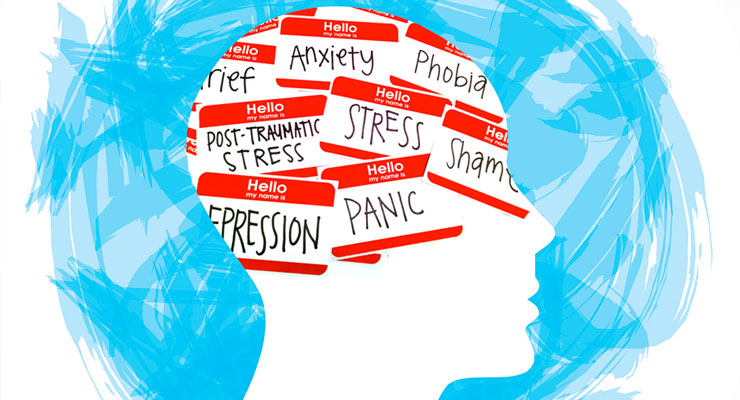
A welcome breakthrough in the field of mental health has been this month’s opening of the world’s first Center for Psychedelic Research at Imperial College London, one of the UK’s foremost universities. The Center’s remit will be to continue their studies into the effects of psychedelics such as (magic mushroom’s) psilocybin and LSD on the brain as well as to work on therapies where they could be useful.
The privately funded center is the formalization of research they’ve been at the forefront of for over a decade now. It is headed by neurologist Dr. Robin Carhart-Harris (see his TED talk here) and his Imperial Psychedelic Research Group working towards their goal of improving the stature of psychedelic medicine within the academic and health communities. The Center intends to develop a prototype for licensed psychedelic care facilities in the future.
Due to the War on Drugs and societal ignorance psychedelics have been marginalized and not taken seriously in many quarters.
Since the synthesis of LSD 76 years ago there have been thousands of scientifically rigorous patient studies, the jist of which is that psychedelics can be very helpful against a wide range of mental disorders. Banned for non-medical, political reasons in 1970 research ground to a halt but its renaissance, led by Imperial College and others, combines modern visual modalities such as MRIs, Functional MRIs and the like to better understand the “how” of why psychedelics work so well.
A new addition to the list of maladies the Institute hopes to work on is anorexia. Heretofore, most psychedelic research has been into depression and addictions, as well as PTSD and end-of-life-anxiety, but anorexia might be a good candidate due to the fact that like the above, similar pathways and mechanisms of action are faulty in anorexia.
Numerous changes in the neuroendrochrine system (brains to hormones) cause a self-perpetuating cycle of decline in anorexics, psychedelics therefore are a good candidate to interrupt this cycle.
It is a disorder desperately needing help as current protocols are of very mixed success. Some provide for the use of SSRIs like Prozac, some don’t, and medical opinion is mixed as to how effective they are in treatment. Meanwhile, between 1-5% of women (and fewer men) battle this extremely dangerous, often fatal disorder with few useful tools.
Although not technically a psychedelic so not on the new Institute’s radar, MDMA (ecstasy/molly) has some similarities with them and there has been some encouraging talk about MDMA’s potential use in eating disorders also.
As a society our reasons for prohibiting various drugs are almost all in direct dis-proportion to the actual medical harm each drug can do. Consequently we cut off clinical research into great contributions some drugs can make, certainly the case with empathogens (drugs that increase empathy, eg MDMA) and psychedelics.
Psychedelics represent a game changer in the field of mental health due to their mechanics of action. When it comes to psychopharmacology the current model is to treat the brain as a soup and tinker with adding more ingredients. Psychedelics do that, but perhaps their most valuable action is they also engender greater connectivity between areas of the brain which have not been communicating since we were infants, so it’s a neurological construction project with psychedelics rather than just an ingredients change. This phenomenon perhaps explains why tripping patients under the influence often report a child-like, “innocent” view of the world in addition to the other pyrotechnics and weirdness of the experience.
Such ratcheted up neural connectivity, though not the child-like-view, can last days, weeks, or months resulting in happier and healthier mental states. Specifically that increase in connectivity can act as a “trip wire” to interrupt the repeating mental states and behaviors evident in depression, addiction, and anorexia: there are similarities in the psycho-dynamics of all three and given the efficacy of success against (even treatment resistant) depression and addictions, bringing eating disorders into such research makes a lot of sense.
Psychedelics have proven successful in treating depression at a higher rate than traditional tricyclics or SSRI/SSNI anti-depressants, are almost side effect free, non-addictive, and can’t be overdosed on.
There’s an increased awareness of the potential uses and benign effects of psychedelics in which reality is catching up to our political misapprehensions and the mistakes of prohibition. This change is evinced by citizen lead ballot initiatives in Colorado and Oregon to decriminalize psilocybin, the recent FDA approval to use ketamine in depressive patients and an overall changing of attitudes. Long may it last.
David Anderson’s earlier articles on psychedelia:
Psychedelic Therapy: Making the Sick Healthy and the Healthy Even Better
Towards a Sane Legal Treatment of ‘Magic Mushrooms’ Psilocybin
Jack Jones says
Another great and informative article! Well written as well and helpful to our collective wellbeing.